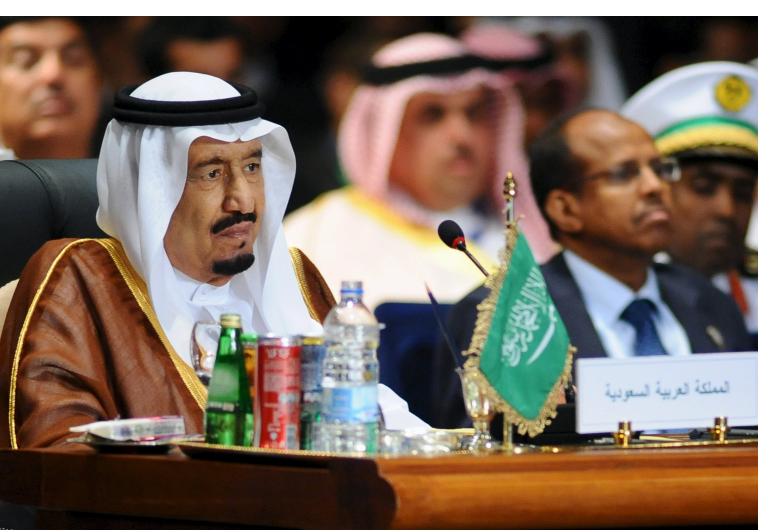US-Arab alignment shows strains before Camp David summit
MICHAEL WILNER/J.Post/05/12/2015
WASHINGTON — Displeased with Washington’s dealings with Iran, with an emerging deal over its nuclear program and with US security proposals to Gulf Arab nations, Saudi Arabia’s King Salman will skip a major summit in Washington this week, as will the leaders of three other Gulf nations.The summit— at the White House and Camp David on Wednesday and Thursday— was organized with the very purpose of assuaging Gulf concerns with shifting US policy in the Middle East toward cooperation with Iran.
In meetings just last week in Riyadh and Paris, Salman and his deputies had assured US Secretary of State John Kerry of his attendance at the summit, prompting a public White House announcement to that effect over the weekend. The White House said on Monday that Salman had confirmed his attendance before pulling out, for reasons, they said, entirely unrelated to the contents of the summit. Salman has not left his kingdom since assuming the crown five months ago upon the death of King Abdullah. According to state-run Saudi press, Salman must remain in the country to manage a brief humanitarian ceasefire with the Houthis in Yemen; He will instead send his two heirs, interior minister Crown Prince Mohammed bin Nayef and defense minister Deputy Crown Prince Mohammed bin Salman.
Privately, White House officials acknowledge unresolved tensions with Riyadh over an emerging nuclear deal with Iran, which seeks to cap, restrict, monitor and partially roll back Tehran’s nuclear work for a finite period in exchange for sanctions relief. Concerned the deal with empower Iran and its activities across the region, Saudi Arabia and its allies in the Gulf Cooperation Council are seeking concrete security guarantees that will guard against Iranian aggression. Proposals for a coordinated security structure across GCC states— Bahrain, Kuwait, Oman, Qatar, Saudi Arabia, and the United Arab Emirates— have been in the works at the political directors level for several weeks. This week’s Camp David summit was meant to be a discussion of those proposals among the principals: US President Barack Obama, alongside King Salman and the heads of each Gulf state in the union. But just days before the summit, all but two leaders, the emirs of Qatar and Kuwait, had declined the president’s invitation.
Oman’s prime minister and crown princes from the UAE, Bahrain, Kuwait and Saudi will all attend in their leaders’ stead. The GCC reportedly seeks advanced weapons systems and contract offers, while the US seeks agreement on a broad structural defense design that would efficiently coordinate Gulf maritime, counterterrorism, air and anti-missile systems. Political agreement among the nations would then lay the foundation for weapons sales, according to US officials. The Obama administration has long advocated for a missile defense system across the region, his aides point out. The summit is intended to expand the scope of US security guarantees to its Arab allies beyond that single portfolio. The summit will begin with a dinner at the White House before moving to the president’s retreat at Camp David, Maryland, host of several international summits in the past. Obama last hosted foreign leadership at the camp in 2012.






















